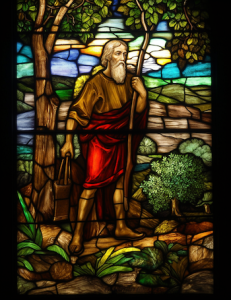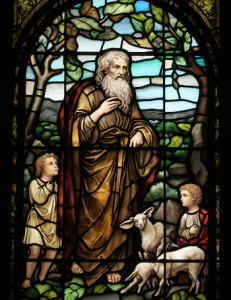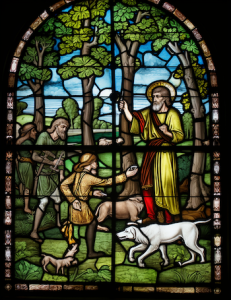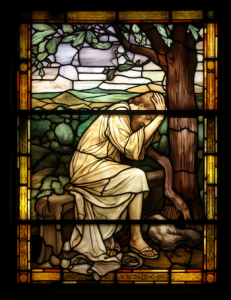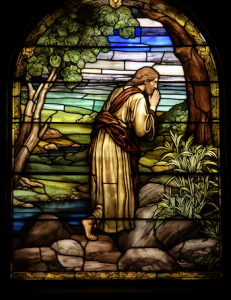Introduction: The Story of Job in the Bible – A Story of Faith Amidst Suffering
The story of Job, as described in the Bible, stands as a testament to the resilience of human faith in the face of unimaginable suffering. The narrative of Job is not just a tale of trivial poor outcomes but a profound exploration of the human spirit’s capacity to remain steadfast in its beliefs, even when confronted with overwhelming adversity.
Job was a man of unparalleled reverence and righteousness. Living in the land of Uz, he was blessed with immense wealth, a loving family, and the respect of his peers. His life was one of prosperity and peace. His story is not rooted in these blessings but in his challenges. These would test the limits of his physical and emotional endurance and probe the depths of his faith in God.
Why do bad things happen to good people? How does one maintain faith when everything they hold dear is taken away? Job’s journey through pain, loss, and self-examination provides insights into these age-old questions.
The Prosperous Beginning: Job’s Initial Blessings and Health
Job is renowned for his vast wealth and, more importantly, for his impeccable character. Described as “blameless” and “upright,” Job was the epitome of righteousness, a man who feared God and shunned evil. His prosperity was evident in every aspect of his life, serving as a testament to the blessings of unwavering faith and devotion.
Job’s material wealth was immense. He owned seven thousand sheep, three thousand camels, five hundred yoke of oxen, five hundred donkeys, and had a large number of servants. This made him the “greatest man among all the people of the East.” But his riches weren’t just material. He was blessed with a loving family of ten children – seven sons and three daughters. They often gathered for feasts, and Job, a devout man, would offer sacrifices for each of them, always concerned about their spiritual well-being.
Health, too, was on Job’s side. In an era of rampant diseases and limited medical knowledge, Job enjoyed robust health. There’s no mention of him suffering from ailments or illnesses during this prosperous phase of his life. His physical well-being and material and familial blessings made him a beacon of prosperity in his community.
He was known to help the poor and stand up for the rights of the downtrodden. His life was a harmonious blend of material success and spiritual depth, making him a role model for many.
In this period of prosperity, Job’s life seemed perfect. Little did he know that this was just the calm before a storm that would test the core of his faith and resilience. But for now, he revelled in the blessings showered upon him, living each day with gratitude and righteousness.
The Great Test: Catastrophes and Calamities in the Story of Job in the Bible
Satan, ever the accuser, questioned the authenticity of Job’s faith, suggesting that his piety was merely a consequence of his abundant blessings. To validate the depth of Job’s devotion, God permitted Satan to test him but stipulated that Job’s life remain untouched.
The onslaught of misfortunes began swiftly. Raiders descended upon his lands, seizing his oxen and donkeys and massacring his servants. Fire from the heavens consumed his sheep and the shepherds tending them. Bands of Chaldeans staged a raid, capturing his camels. But the most devastating blow came when a fierce wind struck the house where all of Job’s children were feasting, causing its collapse and their untimely deaths.
In a matter of moments, Job’s world crumbled. The wealth he had amassed over the years vanished, and the family he cherished was ripped away from him. The sheer magnitude of these calamities would have broken any ordinary man. From unparalleled prosperity, Job was thrust into the abyss of despair and loss.
Yet, in the face of such overwhelming grief, Job’s initial response was profound humility and faith. He tore his robe, shaved his head, and fell to the ground in worship. Recognizing the transient nature of life and material possessions, he proclaimed, “The Lord gave, and the Lord has taken away; blessed be the name of the Lord.” Through this intense trial, Job did not sin or blame God, showcasing an unwavering faith that would be further tested in the coming chapters.
Bodily Afflictions: Job’s Debilitating Health Issues and Disabilities
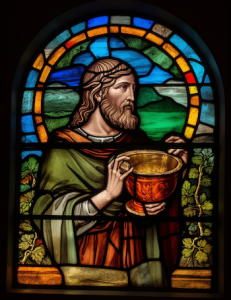 The trials Job faced were not limited to material and familial losses. Still sceptical of Job’s unwavering faith, Satan sought to afflict him further, this time targeting his physical well-being. With divine permission, Satan unleashed a severe ailment upon Job, covering his body from head to toe with painful, festering sores. This was not just a test of faith but a brutal assault on his very essence, his physical self.
The trials Job faced were not limited to material and familial losses. Still sceptical of Job’s unwavering faith, Satan sought to afflict him further, this time targeting his physical well-being. With divine permission, Satan unleashed a severe ailment upon Job, covering his body from head to toe with painful, festering sores. This was not just a test of faith but a brutal assault on his very essence, his physical self.
Job’s once robust and healthy frame was now marred with lesions, causing him excruciating pain. He was reduced to sitting amidst ashes, a poignant symbol of mourning and despair. He scraped at his sores using broken pottery shards, seeking some semblance of relief from the relentless torment. The man once the epitome of prosperity and health was now a shadow of his former self, his body a canvas of suffering.
This physical deterioration was not just a personal ordeal but also subjected Job to social alienation. In the cultural context of the time, such afflictions were often perceived as divine retribution for sins or moral failings. Unable to fathom the reason for his sudden downfall, Job’s friends and community distanced themselves, leaving him isolated in his pain.
His wife, witnessing the depth of his suffering, even suggested that he “curse God and die,” highlighting the severity of his condition and the hopelessness it evoked. Yet, even in the face of such debilitating health issues, Job’s spirit remained unbroken. He refused to denounce God, grappling with his circumstances and seeking understanding.
Wrestling with Questions and Despair in the Story of Job in the Bible
Beyond the losses and physical afflictions, Job’s trials plunged him into a profound mental and emotional abyss. The once unshakeable pillar of faith and righteousness found himself grappling with questions that pierced the very core of his beliefs.
“Why is this happening to me?” Job must have wondered. The weight of his losses and physical pain gave rise to feelings of despair, isolation, and confusion. The silence from the heavens only intensified his anguish, making him feel abandoned in his darkest hour.
Rather than offering solace, Job’s friends added to his emotional turmoil. While initially sympathetic, Eliphaz, Bildad, and Zophar soon began to insinuate that Job’s sufferings resulted from some hidden sin or wrongdoing. Their accusations, rooted in the belief that suffering was a direct consequence of sin, further isolated Job. He was wrestling with his pain and defending his integrity and righteousness.
Job cursed the day of his birth, wishing he had never been born. Given his lifelong devotion to God, he questioned the justice of his suffering. Yet, even in his deepest despair, he never renounced God. Instead, he sought a dialogue, an understanding, a reason for his trials.
Unwavering Faith: Job’s Steadfastness and Conversations with God
In their attempts to rationalize his suffering, Job’s friends suggested that he must have sinned to incur such divine wrath. Yet, Job, confident in his righteousness, rejected these notions. He challenged their simplistic understanding of retribution and righteousness, asserting that his relationship with God was deeper and more complex than they could fathom.
His conversations with God are among the most profound passages in biblical literature. Rather than a one-sided lament, they were dialogues filled with questions, pleas, and introspections. Job sought to understand the nature of his suffering and its purpose. He questioned God, not out of defiance but from a place of deep love and a longing for understanding.
God’s response was not a direct answer to Job’s queries. Instead, it was a revelation of His omnipotence and the mysteries of the universe. Through a series of profound questions, God reminded Job of the vastness of creation and the limitations of human understanding. It was a humbling experience for Job, who recognized the enormity of God’s power and the depth of His wisdom.
Divine Restoration: God’s Blessings and Renewed Prosperity in the Story of Job in the Bible
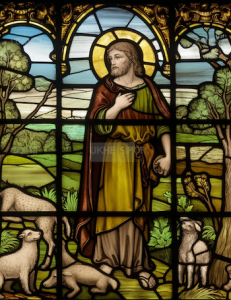 After enduring harrowing trials, Job’s narrative turns towards hope and restoration. Recognizing Job’s unwavering faith and righteousness, God intervened to restore Job’s fortunes and bless him even more abundantly than before. This divine restoration is a testament to God’s infinite mercy and the rewards of steadfast faith.
After enduring harrowing trials, Job’s narrative turns towards hope and restoration. Recognizing Job’s unwavering faith and righteousness, God intervened to restore Job’s fortunes and bless him even more abundantly than before. This divine restoration is a testament to God’s infinite mercy and the rewards of steadfast faith.
God rebuked Job’s friends for their misguided counsel and instructed them to seek Job’s intercession, acknowledging his favoured status. Job prayed for his friends, further exemplifying his righteous character. Following this act of forgiveness, the tide began to turn in Job’s favour.
The Lord restored Job’s fortunes twofold. He was blessed with fourteen thousand sheep, six thousand camels, a thousand yoke of oxen, and a thousand donkeys. This material prosperity surpassed his initial wealth, symbolizing God’s abundant grace. But more precious than material wealth was the restoration of his family. Job was blessed with ten more children – seven sons and three daughters. They were described as exceptionally beautiful, with the daughters inheriting an equal share of Job’s property, a rare and progressive gesture for the times.
Job’s latter days were marked by joy, prosperity, and familial bliss. He lived for another 140 years, witnessing the lineage of his sons and the sons of his sons. The man who had once sat in ashes, grappling with loss and pain, was now surrounded by love, prosperity, and the blessings of the Divine.
Job’s divine restoration is not just a tale of regained wealth and family. It’s a profound message about the redemptive power of faith. It serves as a beacon of hope, reminding us that even in our darkest hours if we remain steadfast in our faith, divine grace can restore, renew, and bless us in ways beyond our comprehension.
This blog is the second in a series that shares the lives of people in the Bible who served God with disabilities, disorders, or other health issues. Click here for the first blog about Moses.
Please comment on your thoughts about the Story of Job in the Bible
Click here for the Wikipedia article about Job.
Click here for additional information about this site.

